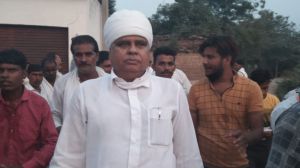From war to PR
Lie back and think of Sri Lanka. And what comes to mind is a group of rebels called Tigers, bloody battles, suicide bombers and assassinati...

Lie back and think of Sri Lanka. And what comes to mind is a group of rebels called Tigers, bloody battles, suicide bombers and assassinations.
But not any more, not if the government can help it. Taking a cue from similar successful experiments in Egypt and Sudan and aided by a US public relations firm, Sri Lanka will soon embark on a global image-building exercise to bring in more tourists, rake in more foreign investment, sell more Sri Lankan tea abroad and generally create a positive feel about the country in a way that the Australian cricket team will be actually begging to come over.
Worth roughly 2.5 million, the campaign will be run by the New York-based firm of publicists Manning, Selvage and Lee, who will work together with the country8217;s Tourism Board and the Board of Investment, both semi-autonomous government bodies. A blue-print submitted by the publicists is 8220;under study8221;, officials told The Indian Express.
8220;It8217;s not another advertising campaign, this will be real PR,8221; a senior official said. More of hard talking, footwork and building contacts in the right sectors and less of cliched pictures in the glossies of sun8217;n8217;sand, coconut fronds and waves from the Indian Ocean lazily lapping the edges of the island. Officials are determined that this campaign will not be allowed to go the way of other previous publicity campaigns which degenerated into slanging matches with the Liberation Tigers of Tamil Eelam LTTE, who have created an effective and efficient propaganda machine that operates out of the group8217;s London headquarters.
8220;There is a serious misinformation campaign by the LTTE about Sri Lanka but we will focus not on countering that but on creating our own campaign in such a way that LTTE propaganda will get overshadowed automatically,8221; said the official.
Details of the blue-print are a closely guarded secret but it is learnt that one of the strategies is to fly in top travel writers from all over the world to experience the positive side of Sri Lanka. While the aim of the exercise is to 8220;raise the image of the country in the eyes of the whole world8221;, Russia, Japan and Korea have been chosen for particular attention, officials said. While there are immense opportunities for trade with the former superpower, Sri Lanka sees itself as having the right conditions for major investment from the two eastern nations.
But there8217;s a tough task ahead for the publicity managers, especially with memories of 1996 still fresh. Last year was a real low for Sri Lanka: after the LTTE bomb attack on the country8217;s central bank which left 100 people dead, tourist arrivals dropped by 30 per cent. A severe drought led to massive power cuts, one of the reasons for a 2-per cent slump in economic growth down at 3.8 per cent, and inflation remains in double digits.
At SLRs 47 billion, nearly 22 per cent of the government8217;s projected total expenditure for 1997 will be devoted to containing the LTTE, which is certain to have a crippling effect on the economy. No wonder, then, that foreign capital has never risen to more than 1 per cent of the GDP.
Somehow, the government has so far failed to turn to its advantage the good relations it enjoys with most other countries of the developed world under the leadership of President Chandrika Kumaratunga. Despite these circumstances, there is a belief that if the war could somehow be downplayed, there will be a complete turnaround. 8220;The President has set the ball rolling and we have to build on that,8221; an official said. It is hoped that concerted public relations by professionals will succeed where politicians have failed. Recently, in order to complement the work of the publicity firm, the Government also appointed media professionals to five of its missions abroad.
- 01
- 02
- 03
- 04
- 05































